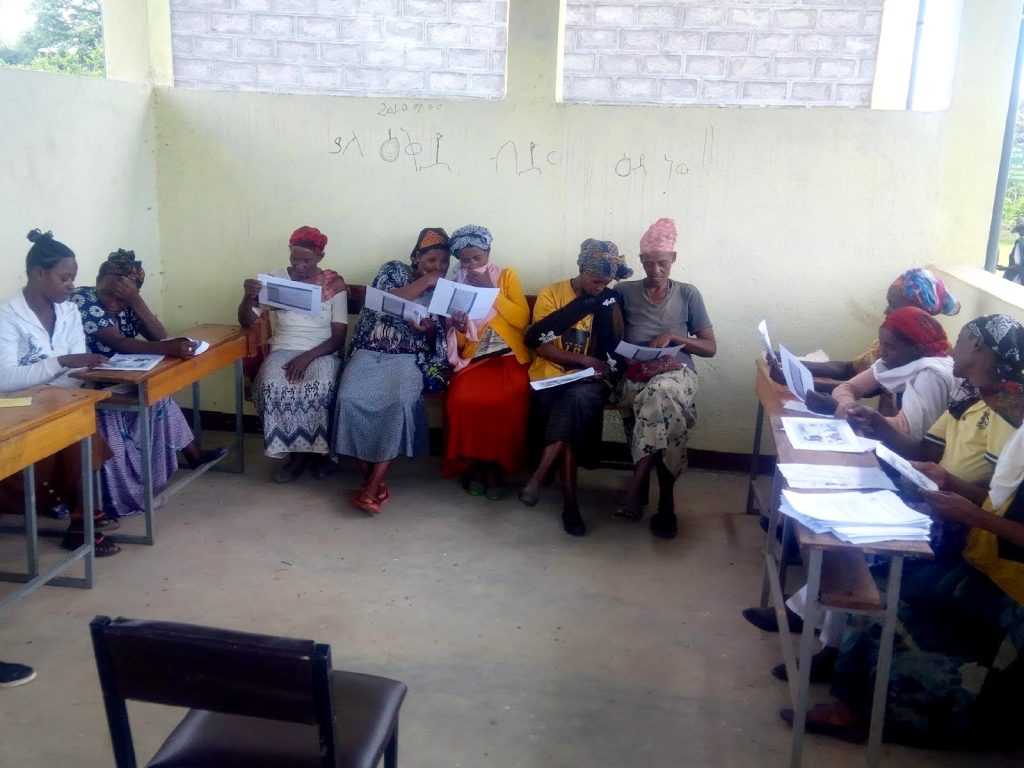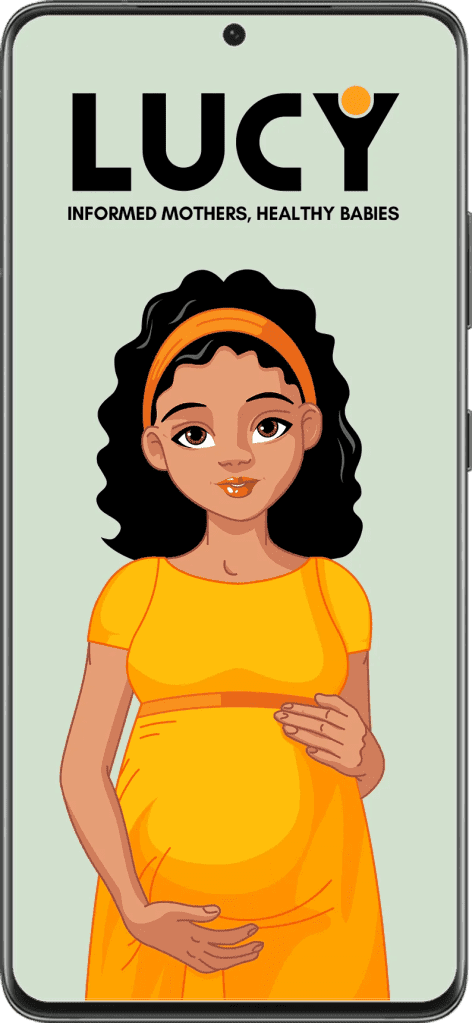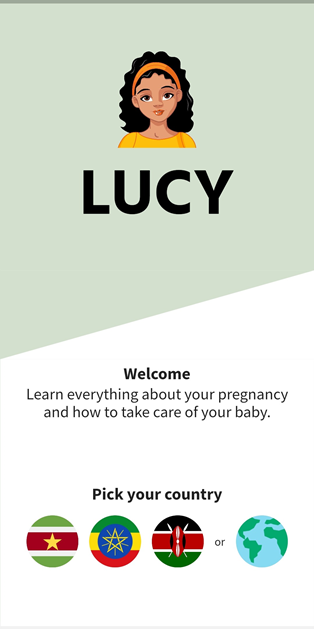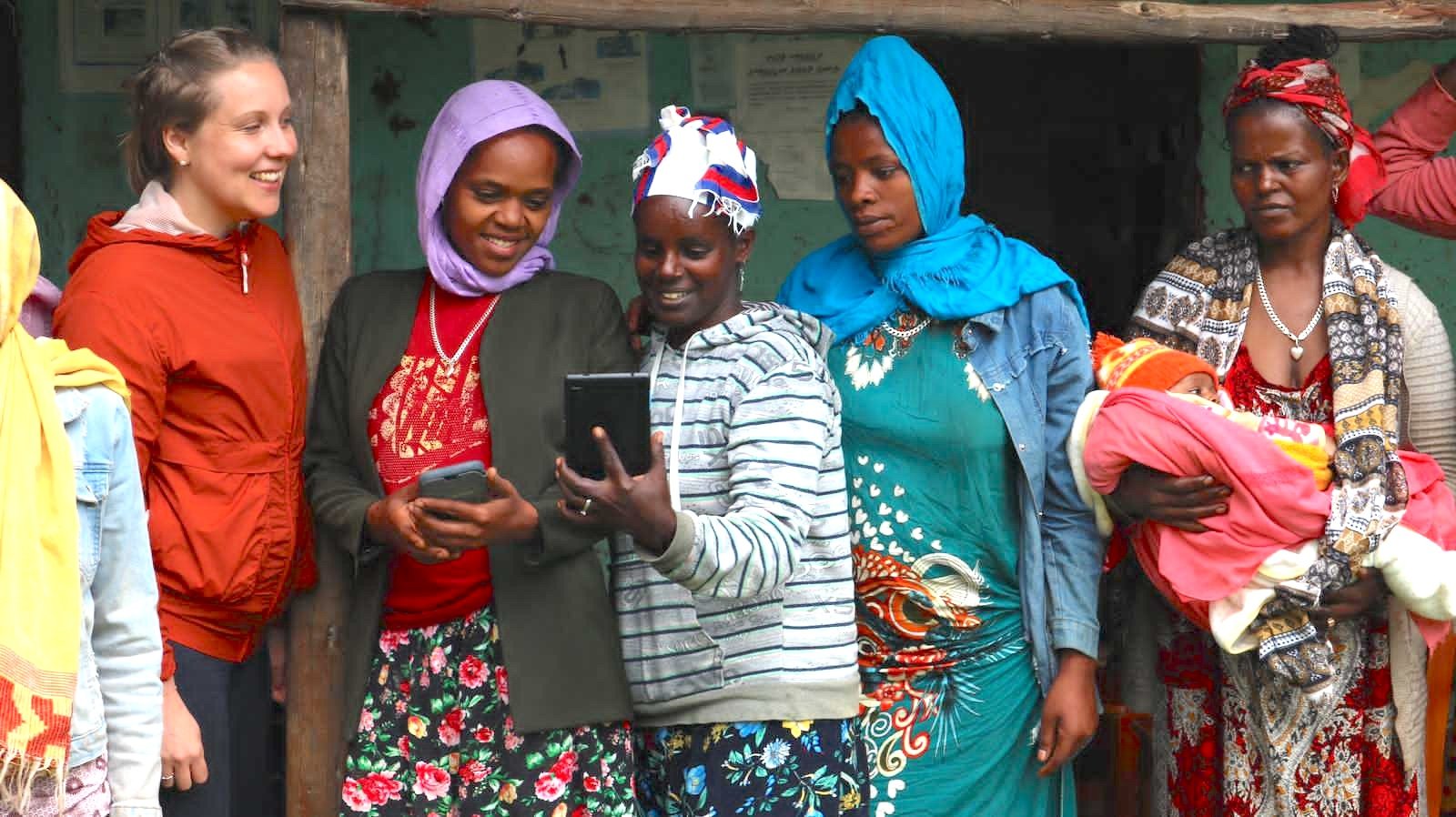Last year, Nuru Ethiopia launched a partnership with Health[e]Foundation. Together, these organizations are committed to ending preventable maternal and child mortality in southern Ethiopia by bridging the digital divide. Through this partnership, Nuru Ethiopia and Health[e]Foundation expanded their opportunities for supporting expectant women by enhancing the capacity of Health Extension Workers (HEWs) through blended learning. This ensures women can access quality maternal and child health services and information.
The Importance of Supporting Expectant Mothers in Rural Communities
Improving health outcomes for expectant mothers and newborns is critical for enabling women to make meaningful choices for their lives. Preventing needless disease and death has ripple effects in households and communities by avoiding the trauma and significant costs associated with extended illness, suffering, and loss. More predictable experiences with motherhood and child-rearing make for healthy mothers and children, thriving households, and more cohesive communities.
Ethiopia Prioritizes Health
The government of Ethiopia is committed to advancing the Sustainable Development Goals by decreasing the maternal mortality rate (MMR), increasing the number of deliveries conducted by skilled healthcare professionals, and decreasing the neonatal mortality rate (NMR). Health Extension Workers (HEWs) are critical to achieving these goals, as HEWs work directly with expectant mothers to provide guidance on both nutrition and accessing healthcare services. To support its goals and increase the reach of HEWs’ support, the government of Ethiopia is digitizing the community health information system.

Health Extension Workers (HEWs) providing training to care group leaders (2023)
Technology in Health
There remains a need for more inclusive digital healthcare to support efficient and effective healthcare systems. The United Nations General Assembly resolution adopted the 2030 Agenda for Sustainable Development, which states that the “spread of information and communications technology and global interconnectedness has great potential to accelerate human progress, to bridge the digital divide, and to develop knowledge societies” (UNFPA). This underscores the power of information and communications technology in fostering interconnectedness with the call for a more digitally integrated healthcare landscape.
Nuru Ethiopia’s History of Supporting Health
Nuru Ethiopia’s efforts to serve women in partnership with Health[e]Foundation build on Nuru Ethiopia’s existing work to improve health outcomes for women and children. Nuru Ethiopia’s health initiatives focus on activities supporting antenatal and postnatal services, construction and equipping of maternal waiting rooms at health centers, and food preparation demonstrations for mothers to support proper preparation of nutritious food. To improve maternal and child health, the Nuru Ethiopia Healthcare (HC) Program works with Nuru farmer households to promote the adoption of healthy behaviors, including the adoption of immediate and exclusive breastfeeding, attendance to antenatal care visits, and delivery in a health facility. These chosen healthy behaviors, informed by both WHO and USAID, have been proven to decrease unnecessary disease and death for mothers and young children.
Care Groups
Nuru Ethiopia uses care groups–small women’s groups with elected volunteer leaders–to work alongside the local government health system to deliver crucial health-related information to underserved households. Care groups focus specifically on maternal and child health behaviors.
Through these care groups, Nuru Ethiopia contributed to a decrease in child mortality of 21% during the COVID-19 pandemic–a significant achievement during a public health crisis. Additionally, 92% of pregnant women in Nuru Ethiopia’s supported households attended at least 4 antenatal care appointments. These appointments are critical to ensuring the health of postpartum mothers and newborn infants during the weeks they are most at-risk following delivery.
Health[e]Foundation Supports Local Governments to Reach Marginalized Communities
Digital solutions offer promise to marginalized communities with limited access to resources. COVID-19 spurred on many of these adaptive new technologies; however, the digital divide continues to marginalize those who desperately need these resources the most. Health[e]Foundation, established in 2003, envisions a world with access to quality healthcare and essential information, in order to achieve better health for all. The organization offers health education and information services, applying online and offline learning methods. Health[e]Foundation provides digital health education and learning services to strengthen existing healthcare systems, like those in Ethiopia, and communities globally. It focuses on maternal and child health, sexual and reproductive health and rights, and community health.
Health[e]Foundation’s LUCY app
Health[e]Foundation developed the LUCY app to address the challenges faced by pregnant women and mothers of newborns with either limited or no access to information about their pregnancy or the first year of their babies’ lives, which can lead to serious and preventable health complications. LUCY is a free smartphone app for pregnant women and parents of newborns, and it contains a personalized calendar of all antenatal and postnatal care visits and vaccinations for the newborn. The app aims to reduce maternal and neonatal morbidity and mortality by supporting women and parents to make informed decisions about their health and the health of their baby.


It provides weekly information tailored to the gestation age of the woman or age of the newborn (up to one year of age). The app provides information about fetal development, potential health risks, healthy behavior and nutrition, birth preparedness, family planning, and vaccines. The app also sends reminders for antenatal and postnatal care visits. LUCY is available in English, Dutch, Amharic and Oromo for Ethiopia. LUCY is made with the involvement of the community that it targets, and new features of the app for community health workers are currently being tested.
Nuru’s Care Group Approach and Health[e]Foundation’s Digital Learning
Pregnant women and mothers of newborns being introduced to the Lucy App in Ethiopia (Photo Credit: Health[e]Foundation (2023)
This partnership is committed to training HEWs using blended learning for enhanced learning outcomes and to improve performance service delivery through the LUCY app. Nuru’s history of providing health services combined with its commitment to utilizing appropriate disruptive technologies, allows it to reach expectant women in rural areas who otherwise would not have access to health facilities and professional advice. By working with Health[e]Foundation’s digital learning solutions, Nuru can address the need for digital health solutions in Ethiopia and contribute to better maternal and child health outcomes. This partnership intends to better equip HEWs to teach and track healthy behavior adoption within their communities. Ultimately, Nuru Ethiopia and Health[e]Foundation aspire to scale and expand their impacts to reach more women who will be provided with technology-based accurate health information services focused on MCH and nutrition through the scale-up of the LUCY app.


